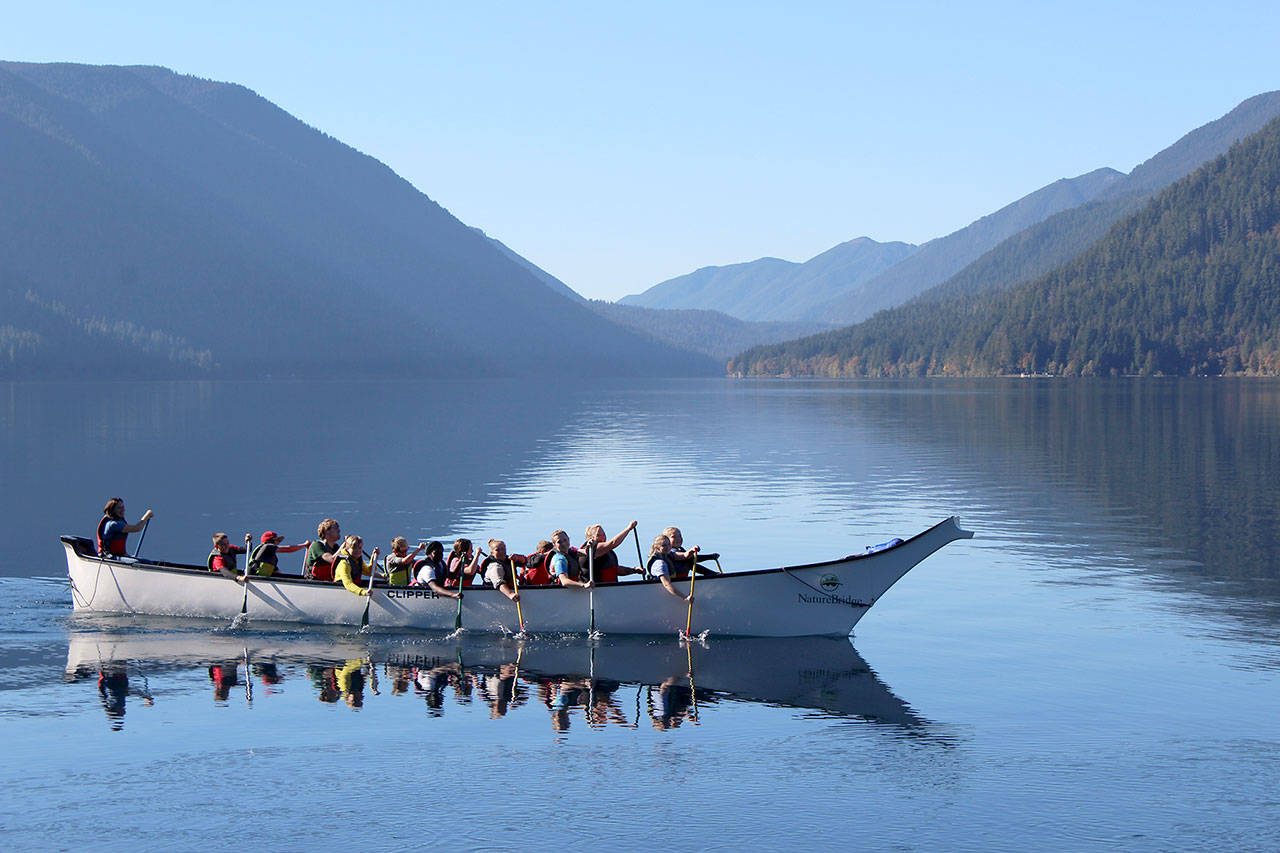NatureBridge in Olympic National Park has shut down its residential environmental program for at least a year, falling victim to COVID-19 restrictions.
The organization, which illuminates science for school children, will terminate 21 already-furloughed employees, according to its Worker Adjustment and Retraining Notification to the state Employment Security Department.
The workers were all but let go in March, effectively halting the program after Gov. Jay Inslee began imposing statewide restrictions to combat the unique coronavirus, said Stephen Streufert, the nonprofit’s Pacific Northwest director and its vice president of education, on Aug. 12.
“Staff was no longer needed to be able to provide the environmental education and transformative experience in the national park,” he said.
“What we are seeing now, as the pandemic stays on, we are making more definitive choices about staff and employment.”
Streufert said the San Francisco, Calif.-based organization, which had 220 employees and four facilities at parks across the U.S. before the coronavirus hit, is terminating already-furloughed staff nationally as of Aug. 15 and has shut down its Seattle office.
That will leave 30-35 full-time-equivalent employees whose number will likely drop further in October, he said.
The NatureBridge buildings and cabins at Barnes Point on Lake Crescent, used for environmental education since 1987 under a cooperative agreement with Olympic National Park, will reopen by September 2021 if the pandemic has abated by then.
“We want to come back, and we want to get out there because we believe in the benefits of what happens with kids when they’re out there,” Streufert said.
Remaining staff is developing an online program to educate students beginning in September, when school districts nationwide, including those on the North Olympic Peninsula, restrict the field trips that are NatureBridge’s life blood.
“We hope that distance learning will fill in,” Streufert said.
“If there’s a silver lining in any of this, it’s trying to turn these lemons into some sort of lemonade for our schools and kids.”
Six educators are working on the distance-learning program, Annie Schuler, director of communications for the national organization, said Wednesday.
“We can do a place-based style of education even if it is a digital platform and talk about the Elwha (River), do climate science education, a get-to-know-your-park program,” she said.
“We’re hoping to provide a good service to teachers and students and parents struggling through the pandemic and to make the program better.”
About 35,000 children take art in the national NatureBridge program that was established in 1971.
Participants engage in environmental education at Yosemite National Park, Golden Gate National Recreation Area, Prince William Forest Park in Virginia near Washington, D.C., and Olympic National Park, where 5,000 children, mostly from Western Washington, visit annually and take part in three- to five-day overnight programs.
The 150-160 students from elementary to high school stay on Lake Crescent property that includes the historic Rosemary Inn and Storm King Hall.
“The piece we are really proud of over the last (33) years is that we’ve made a really careful and concerted effort to work with the park and with Port Angeles schools to ensure every one of these fifth-graders from Jefferson, every fifth-grader from Port Angeles, has had the opportunity to have three days at NatureBridge,” Streufert said.
Classroom groups of children take part in the program.
They conduct science investigations, do water-quality studies of the Elwha River, learn about the role of national parks, canoe on Lake Crescent and “become engaged in social and emotional learning on how do they understand themselves and others,” Streufert said.
“They come out of this with an awesome connection to science and a connection with emotional learning,” he added.
“There’s something about that immersive experience,” Streufert said, “and what it feels like to belong and share with nature.”
NatureBridge is not alone in feeling the vise of COVID-19.
So are similar organizations that together educate 1.5 million children nationwide, Streufert said.
The pandemic has been “devastating” to outdoor and environmental science education nationally, according to a University of California at Berkeley survey of 995 organizations.
“Only 22 percent of program leaders anticipate they will ‘definitely’ be able to reopen if social distancing guidelines are in effect through Dec. 31, 2020, while 30 percent report they will be definitely unable or very unlikely to reopen,” according to the survey.
“Some organizations have already gone out of business,” Schuler said.
“We are lucky to be able to have made it this far.”
NatureBridge is cutting expenses and actively fundraising to stay afloat, Streufert said.
“My North Star is, I want to hear the learning and the laughter of the kids echoing off the quiet waters of Lake Crescent again,” he said.



